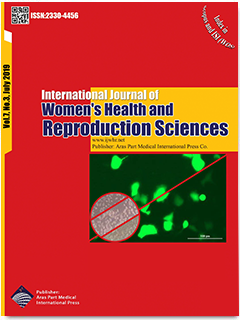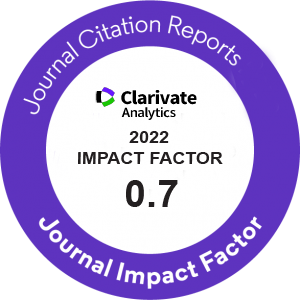| Original Article | |
| Women?s Reproductive Empowerment: A Comparative Study of Urban and Rural Females in Iran | |
| Arezo Alishah1, Jila Ganji2, Rezaali Mohammadpour3, Zahra Kiani4, Zohreh Shahhosseini2 | |
| 1Student Research Committee, Mazandaran University of Medical Sciences, Sari, Iran 2Department of Reproductive Health and Midwifery, Sexual and Reproductive Health Research Center, Mazandaran University of Medical Sciences, Sari, Iran 3Department of Biostatistics, Health Sciences Research Center, Mazandaran University of Medical Sciences, Sari, Ira 4Midwifery and Reproductive Health Research Center, Shahid Beheshti University of Medical Sciences, Tehran, Iran |
|
|
IJWHR 2019; 7: 294-300 DOI: 10.15296/ijwhr.2019.49 Viewed : 3533 times Downloaded : 3125 times. Keywords : Women?s empowerment, Reproductive health, Reproductive-aged women |
|
| Full Text(PDF) | Related Articles | |
| Abstract | |
Objectives: Women?s reproductive empowerment is an essential issue for good reproductive health which is affected by various socioeconomic and cultural factors. This study was designed to compare women?s reproductive empowerment in urban and rural areas. Materials and Methods: In this descriptive-analytical and correlational-type study, 810 women referring to health care centers in Sari were recruited through proportional cluster sampling method. Data were collected using a questionnaire on women?s reproductive empowerment including cultural, individual-family, social, and family planning domains. Finally, the obtained data were analyzed using descriptive and analytical tests. Results: The mean (standard deviation) of women?s reproductive empowerment score was 91.46±13.14 (a 95% CIof 90.55-92.36) and no statistical difference was observed between the urban and rural women in this respect (P = 0.59). In addition, cultural and family planning domains obtained the highest 29.12 (5.80) and the lowest 17.55 (4.25) scores concerning reproductive empowerment, respectively. Therefore, women?s reproductive empowerment score was significantly correlated with the females? employment status (P = 0.006) and their husbands? levels of education (P < 0.001). Conclusions: Overall, the finding contributes to the discourse on women?s reproductive empowerment based on their residential area and thus adds to the limited literature on this issue in developing countries and Iran, in particular. Therefore, appropriate planning is required for women with various employment statuses and their spouses with different educational levels in order to improve their empowerment in terms of reproductive issues. |
Cite By, Google Scholar
Google Scholar
PubMed
Online Submission System
 IJWHR ENDNOTE ® Style
IJWHR ENDNOTE ® Style
 Tutorials
Tutorials
 Publication Charge
Women's Reproductive Health Research Center
About Journal
Publication Charge
Women's Reproductive Health Research Center
About Journal
Aras Part Medical International Press Editor-in-Chief
Arash Khaki
Mertihan Kurdoglu Deputy Editor
Zafer Akan























